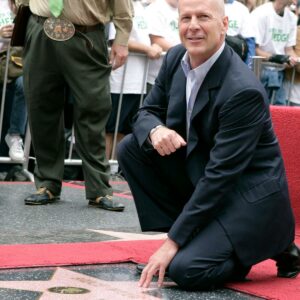Introduction: A Star’s Platform for Change
In a world where the power of cinema transcends mere entertainment, Ryan Gosling, one of Hollywood’s most revered and versatile actors, recently took the stage not just to promote his latest film but to spotlight a critical issue: diversity and inclusion in the film industry. At a packed press conference, Gosling didn’t just talk about his craft or the nuances of his latest role; instead, he used his platform to advocate for a cause that is reshaping Hollywood from the inside out. His words resonated far beyond the confines of the room, echoing a growing sentiment within the industry: the urgent need for a more inclusive and representative film industry that mirrors the rich diversity of the global audience it serves.
The Power of Storytelling and the Need for Diverse Voices
Gosling began his address by emphasizing the profound impact that cinema has on society. He spoke passionately about how films are not just a form of entertainment but a powerful medium for storytelling that can shape perspectives, challenge norms, and foster empathy. “Cinema,” Gosling remarked, “is a mirror held up to society. But what happens when the reflection isn’t complete? When the stories we tell don’t include everyone, we miss out on the full picture of what it means to be human.”
He highlighted the importance of diversity in storytelling, asserting that the most compelling and authentic narratives come from a tapestry of voices. “Diversity isn’t just a buzzword,” Gosling insisted. “It’s the backbone of genuine storytelling. When stories are told from different perspectives—across cultures, races, genders, and experiences—they become richer, more complex, and ultimately more truthful.” For Gosling, the inclusion of diverse voices in the creative process is not a matter of political correctness; it is essential to the integrity of the stories being told.
Beyond the Screen: Inclusivity Behind the Scenes
While diversity on screen has been a focal point of recent discussions, Gosling turned the spotlight to the often-overlooked aspect of inclusivity behind the scenes. He acknowledged the strides that have been made in recent years—more women directors, more films with diverse casts—but cautioned against complacency. “It’s not enough to just change what we see on the screen,” he said. “The real change happens behind the camera, in the writers’ rooms, in the boardrooms where decisions are made.”
Gosling underscored the need for a systemic overhaul of the industry, where inclusivity is not just a goal but a standard practice. “We need to ensure that diversity is present in every aspect of filmmaking—from the writers who pen the stories, to the directors who bring them to life, to the crews who make it all possible,” he argued. “The stories we tell are only as authentic as the people who create them. If we want to tell stories that resonate with everyone, we need to make sure everyone has a seat at the table.”
The Creative Impact of Diverse Perspectives
Drawing from his own experiences, Gosling shared how working on films with diverse casts and crews has enriched his own understanding of the world and his craft. “Every time I work on a set with people who bring different perspectives, it challenges me as an artist,” he said. “It makes me question my own assumptions, pushes me out of my comfort zone, and ultimately makes the work better.”
Gosling described how diversity fosters creativity, leading to films that are not only more inclusive but also more innovative. “When you bring together people from different backgrounds, you get a fusion of ideas that you wouldn’t get otherwise. It’s in that mix of perspectives that you find something truly original. It’s how you push the boundaries of what film can do.”
He spoke of the need to go beyond tokenism, stressing that diversity should not be about checking boxes but about genuinely valuing different voices and the unique contributions they bring. “It’s not just about having a diverse cast or crew for the sake of it,” Gosling emphasized. “It’s about understanding that those different perspectives are what make great films possible. They’re what make the stories we tell worth telling.”
Hollywood’s Responsibility in Driving Social Change
As the conversation shifted to the broader role of Hollywood, Gosling did not shy away from addressing the industry’s influence on societal norms and values. He recognized that Hollywood has a unique power to shape culture and public opinion, and with that power comes a responsibility to promote positive change. “Films have always been a reflection of the times, but they also have the power to shape those times,” Gosling said. “We have a responsibility as filmmakers to use our platform to challenge the status quo, to tell stories that push boundaries and inspire change.”
Gosling called on Hollywood to use its influence to break down stereotypes and foster a more inclusive society. He noted that by embracing diversity, films can challenge long-held misconceptions and offer new narratives that reflect the complexities of the real world. “When we tell diverse stories, we don’t just entertain—we educate, we provoke thought, and we pave the way for a more inclusive future.”
He cited examples of films that have sparked important conversations and shifted societal attitudes, emphasizing that the industry’s potential to drive social change should not be underestimated. “We’ve seen it time and time again,” Gosling said. “A film comes out that challenges the way people think, and suddenly, it feels like the world changes just a little bit. That’s the power of cinema.”
The Road Ahead: A Call to Action
In the final moments of his address, Gosling expressed cautious optimism about the future of the film industry. He acknowledged the progress that has been made, particularly in the wake of movements like #OscarsSoWhite and Time’s Up, but emphasized that the work is far from over. “We’ve made strides, yes, but we can’t stop now,” he warned. “The momentum is there, but we need to keep pushing forward. Change doesn’t happen overnight—it’s a continuous effort.”
Gosling urged his peers in Hollywood to remain committed to the cause of diversity and inclusion, not just as a trend, but as a fundamental shift in the way the industry operates. “This isn’t a moment—it’s a movement,” he declared. “And it’s up to all of us to make sure that movement doesn’t lose steam. We need to be intentional about the stories we tell and the people we empower to tell them.”
He concluded with a call to action, encouraging filmmakers, producers, and industry leaders to be proactive in creating opportunities for underrepresented voices. “It’s not enough to wait for diverse stories to come to us,” he said. “We need to seek them out, nurture them, and bring them to the forefront. The future of cinema depends on it.”
Conclusion: A Star’s Influence Beyond the Silver Screen
Ryan Gosling’s press conference was more than just another promotional event—it was a rallying cry for a more inclusive and equitable film industry. As one of Hollywood’s leading actors, Gosling’s words carry significant weight, and his advocacy for diversity and inclusion reflects a growing movement within the industry. His call for systemic change behind the scenes, his emphasis on the creative power of diverse perspectives, and his recognition of Hollywood’s role in driving social change all underscore the importance of this issue.
As Hollywood continues to evolve, the push for greater diversity and inclusion is not just a matter of ethics—it’s a matter of survival. In a globalized world where audiences are more diverse than ever, the stories that resonate will be those that reflect the full spectrum of human experience. And as Gosling’s speech made clear, the future of cinema is richer, more vibrant, and more inclusive when everyone has a voice.
Gosling’s advocacy is a reminder that change is possible when those in positions of influence use their platforms to champion causes that matter. As the film industry moves forward, the hope is that more voices like Gosling’s will emerge, leading to a more inclusive and representative Hollywood that tells stories for and about everyone





